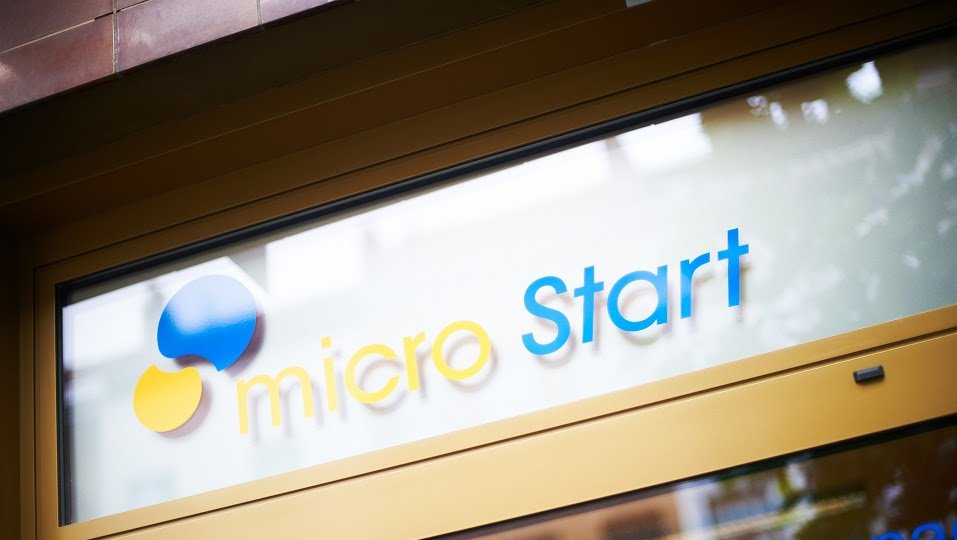microStart creates sustainable jobs
A study carried out by the Vlerick Business School shows that at the end of a period of 1.5 to 3 years, 60% of all those who took out a microStart loan are still running the company they set up, while 21% have either started another business or are now in salaried employment. The micro-lending provider has therefore resulted in savings of €1.09 million on social security payments and services, plus a gain of €1.12 million in tax revenue to the Belgian State.
microStart finances and handholds would-be entrepreneurs who are unable to obtain traditional bank loans but have plans to set up or grow their own small business. In order to assess the socio-economic benefits and overall impact of the microStart initiative, BNP Paribas Fortis recently commissioned a full analysis of the results of loans granted in years 1 and 2.
BNP Paribas Fortis, microStart's main partner, entrusted the study to the Vlerick Business School, where the bank sponsors a chair dedicated to multidisciplinary research and the spread of economic knowledge. microStart has already granted 1,200 microloans, but the study focused on the first 315 taken out between 2011 and 2012, so as to be able to take a longer, more objective view and assess how the micro-businesses set up have been progressing over a reasonable period of time.
Microcredit – A lending instrument with strong social impact
The main aim of the study was to assess the socio-economic impact of microStart activity – analysing micro-entrepreneur profiles, the current viability of the businesses set up, the number of jobs created, how successful the initiative has been in getting people into employment and improving the quality of their lives, plus how far factors such as age, gender and background origins affect the success of the projects supported by microStart loans.
The figures show that at the end of a period of 1.5 to 3 years, 60% of those surveyed were still running the business they had set up. Among those who had stopped running the original business, 21% had set up another company or found salaried employment elsewhere. This means that microStart has achieved an 80%-plus success rate in getting people back to work.
Among those who have set up a business or found a job with the help of microStart, 34% had previously been without a stable job or were not working at all. Close to 100% of microStart customers continue to work with their Bank advisor and a good number are now in a position to obtain financing through more traditional channels.
Moreover, the microStart initiative has not only led directly to substantial savings for the State on various forms of social subsidies but has also helped to generate considerable amounts of tax revenue. The €2.33 million worth of loans granted has resulted in a reduction of €1.09 million on unemployment benefit and other types of social security disbursements and a gain of an estimated €1.12 million in new company and/or personal income tax payments and related contributions.
BNP Paribas Fortis and microStart, 'head & heart' partners
microStart was launched in 2010 as a pilot programme designed to help those wishing to set up their own businesses, on the initiative of the French not-for-profit organisation ADIE (Association pour le Droit à l’Initiative Economique) which works to enable people to create their own employment, together with BNP Paribas Fortis. The Bank’s aim was to create a micro-lending organisation that would also provide tailored advice and support to the target borrowers.
“The prime role of a bank is to finance the real economy. By supporting microStart, BNP Paribas Fortis is clearly responding to new needs in the economy, meeting the specific requirements of a type of entrepreneur who has hitherto been hard to reach,” said Alex Houtart, CSR director at BNP Paribas Fortis. “We’re delighted with the results of our initiative, given that the study highlights the powerful impact those microloans are having, and we look forward to continuing to supporting microStart projects going forward.
In addition to the purely financial support which BNP Paribas Fortis provides to microStart, BNP Paribas Fortis also arranges for about 50 staff volunteers to coach and handhold the micro-entrepreneurs before and after they take out their loan. “Our staff are very keen to participate. They are proud to be working on this initiative, which they feel is a really worthwhile activity.”
Microcredit – A virtuous circle
As the Vlerick study shows, microStart is a driver for wealth creation. Every entrepreneur who launches a new business at the same time sets in motion a positive snowball effect that impacts the whole of society – creating sustainable jobs, improving people’s access to credit, bringing greater stability to the lives of people formerly in precarious circumstances, reducing the need for social security disbursements, helping to boost tax revenues, and so on.
“The knock-on effects of microStart help to create a virtuous circle which benefits the whole of society,” argued Philippe Maystadt, an economist and former Deputy Prime Minister of Belgium, who is the Chairman of microStart.
“But we still need help from the public authorities, especially when it comes to removing the obstacles to setting up micro-businesses. They could for example offer incentives to those who launch their own companies by reducing much more gradually the social benefits which all would-be entrepreneurs lose as soon as they set up as self-employer workers.
In four years microStart has granted over 1,200 micro-loans. Our longer term objective is 1,250 annually. The opening of new agencies in Charleroi and Antwerp are intended to mark a new phase in microStart’s expansion policy. Now that we’re up and running in Belgium’s major cities, we’ll be pursuing growth in other localities, setting up permanent offices in the CPAS (public social welfare centres), neighbourhood centres and so on, where we hope to reach out to would-be micro-entrepreneurs.”
www.microstart.be
- BNP Paribas Fortis
- CSR
- Microstart
- Corporate Social Responsibility
